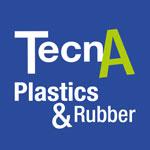 has long pioneered innovations that have become new benchmarks in the industry, and will continue to drive improvements in circularity, food safety, and material efficiency
has long pioneered innovations that have become new benchmarks in the industry, and will continue to drive improvements in circularity, food safety, and material efficiency
The market for liquid yogurts in single-serve bottles is rapidly expanding, establishing itself as one of the fastest-growing segments within the beverage packaging industry. This growth is driven by increasing consumer demand for convenience, portability, and portion control. Addressing these evolving needs, Plastiblow, a leading manufacturer of extrusion blow moulding machines, has become a reference point for high-efficiency solutions tailored specifically to this application.
Versatile solutions for every bottle format
Depending on the bottle size and format, Plastiblow machines can be configured with up to 24 cavities in oriented production, or up to 40 cavities in bottom-to-bottom or neck-to-neck configurations, offering high flexibility and throughput. This modular approach enables manufacturers to scale production while maintaining consistent quality standards.
For high-output applications, Plastiblow’s long-stroke shuttle machines stand out. These systems are capable of hosting moulds with a high number of cavities, delivering production volumes of several million units per year—performance levels previously reserved for rotary systems.
Plastiblow has long pioneered innovations that have become new benchmarks in the industry. Among them are the horizontal carriage movement and the bobbing extruder, which are now increasingly preferred over pendulum-type systems thanks to several performance-enhancing benefits:
• Shorter mould stroke, resulting in faster production cycles;
•Reduced nozzle strokes, increasing cycle efficiency;
•Cleaner parison cuts and improved neck finish, due to reduced tearing during carriage motion.
As early as 1993, Plastiblow adopted linear guides on its mould-holding carriages – now an industry standard – for enhanced precision and performance. The advantages of linear guides include:
• Lower maintenance requirements compared to column systems;
• Greater stability and accuracy in carriage movement;
• Higher speeds and shorter cycle times;
• Improved energy efficiency, thanks to reduced friction from rolling components.
In yogurt packaging, wide-neck finishes with flat sealing surfaces are common to accommodate thermo-sealed peelable foil lids. To streamline this process, Plastiblow developed a dedicated wide-mouth cutter that enables in-machine neck finishing, eliminating the need for secondary trimming operations. This significantly optimizes plant layout and saves valuable floor space.
Plastiblow’s new generation of fully electric blow moulding machines, evolved from its hybrid systems, are ideally suited for clean rooms and controlled environments. These machines eliminate hydraulic oil entirely, reducing contamination risks and making them ideal for food-contact packaging. Key benefits of the all-electric machines include:
• Energy savings, as motors operate only when required – unlike continuously running hydraulic pumps;
• Improved precision and repeatability, unaffected by temperature-related changes in oil viscosity;
• Higher productivity, with faster dry cycles and fewer defects;
• Lower environmental impact, with no hydraulic fluids and significantly reduced noise levels.
For high-speed production of lightweight yogurt bottles ranging from 100 to 450 cc, the PB15ED-700 and PB15ED-800 models are ideal. These machines, designed to replace the earlier PB5E/DXL, can achieve outputs of up to 20,000 bottles per hour in bottom-to-bottom or neck-to-neck configurations.
For medium-output requirements, the PB6ED-450 (formerly PB2E/D) offers a robust and flexible solution, suitable for a wide range of production environments.
Over the past five years, Plastiblow has delivered numerous machines dedicated to yogurt bottle production, consolidating its presence in international markets. A major French multinational recently acquired three PB15ED-700 units in bottom-to-bottom configuration for a facility in Canada, highlighting the increasing global demand for high-output, efficient packaging lines.
Elsewhere, two PB15ED-800 machines were delivered to a producer in Central Africa for the manufacture of mid-sized bottles. Additionally, a leading international packaging group placed an order for four PB6ED-450 machines for its Portuguese production sites, further confirming Plastiblow’s growing international footprint.
In an era where sustainability and environmental responsibility are top priorities, industries such as food and dairy packaging are turning to coextrusion technology as a key solution. This innovative process is essential in producing recycled plastic containers that meet the strict requirements of food safety, especially under EU Regulation 2022/1616/EC, which governs the use of recycled materials in contact with food.
Coextrusion offers numerous advantages:
1. Enhanced barrier properties: Incorporates barrier layers that shield products from moisture, oxygen, and UV rays, extending shelf life.
2. Layer customization: Each layer can serve a specific function, such as rigidity, printability, or barrier protection.
3. Sustainability: Recycled materials can be used as internal layers without compromising safety or functionality.
4. Cost-efficiency: Reduced raw material waste and improved performance make it an economically viable long-term choice.
5. Versatility: Adaptable to a variety of container shapes and sizes.
Plastiblow has acquired substantial expertise in coextrusion, having delivered multilayer machines for various applications such as flavoured milk and vitamin-enriched beverages, where advanced barrier solutions and sealed-neck designs are essential to maintain product integrity.
Plastiblow has also developed extensive expertise in the field of aseptic applications, particularly in bottle sterilization using steam and neck welding to prevent contamination. This technology has been successfully implemented in different machines for the production of 1L, 1.5L and 5L milk bottles, both mono and three-layers (white-black-white). These solutions ensure optimal hygiene and extended shelf life, meeting the stringent requirements of the dairy industry.
While challenges remain—particularly in optimizing recycling processes and increasing consumer awareness—the future of coextrusion in dairy and beverage packaging is undoubtedly promising. Ongoing innovation will continue to drive improvements in circularity, food safety, and material efficiency.
Conclusion
Thanks to its decades of experience and strong focus on innovation, Plastiblow continues to deliver state-of-the-art extrusion blow moulding solutions that support the evolving needs of the dairy packaging industry. From high-efficiency electric machines to cutting-edge coextrusion systems, Plastiblow is helping to build a more sustainable, productive, and cleaner future for packaging worldwide.






